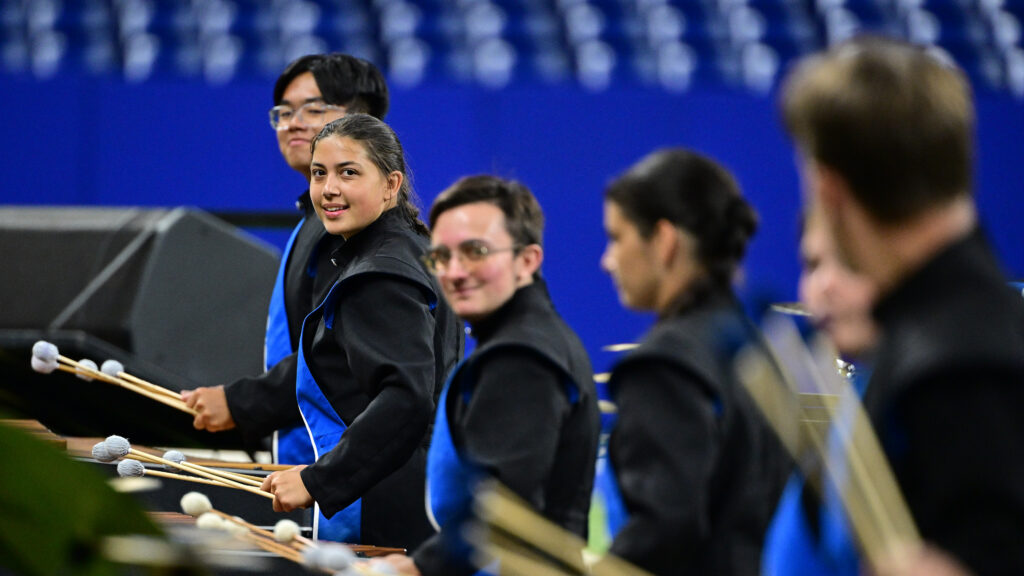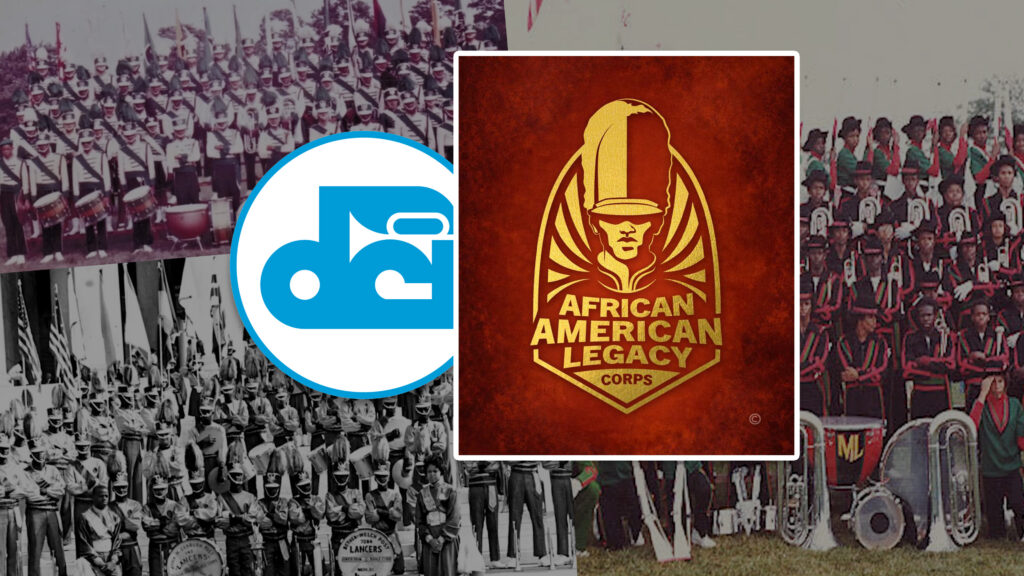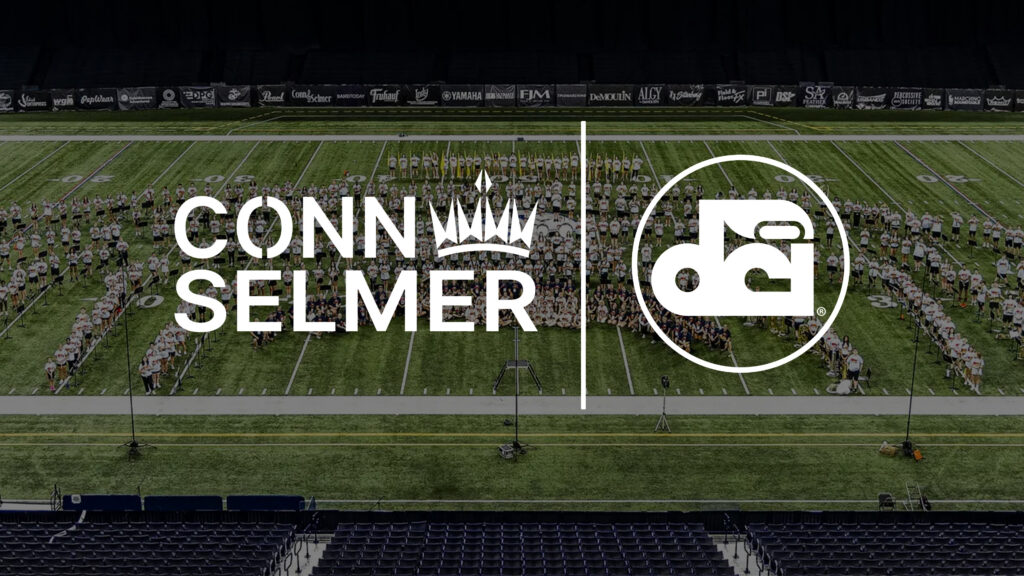Perhaps the most high-profile drum corps veteran in contemporary popular culture, Al Chez plays trumpet every night on CBS’ “The Late Show with David Letterman.” The New Jersey native (he grew up in Woodbridge and now resides in Andover township) lives with his wife, Cat, and children Travis (age 23), Meika (23), Marie (19), Michelle (18), Jessica (17) and Morgan (15), as well as three dogs and a cat. “We have a very full home,” Chez said.
When he’s not playing with the CBS orchestra, Chez still finds time to instruct the Crossmen — to give back a little something to the drum corps activity. “I still owe,” Chez said, adding, “Every time I see a young student in a drum corps uniform I see myself.”

DCI.org: What is your drum corps background?
Chez: My father, growing up in Jersey City, N.J., snuck into the Dream Contest (a storied New Jersey drum corps show) when he was young. His buddies soon cut out, but he enjoyed it and stayed. When there was a corps starting in our hometown of Woodbridge (the Saints), he and my mom were original board members. My two brothers, Peter and Michael, both joined. I was too young. As soon as I turned 9, I joined. I marched there with my brothers until the corps disbanded following the 1977 season. Having drum corps in my blood, I then joined the Garfield Cadets and marched there from 1978 to 1982. I also marched again with my two brothers in the 1982 Reading Buccaneers (senior corps) and the Bushwackers in 1985. I then taught many corps on and off while pursuing my musical career. I worked with such corps as the Cadets, the Reading Buccaneers, the Oakland Crusaders, the Bushwackers, the Kingston Grenadiers and the Crossmen. I still am involved with corps, consulting for the Bushwackers and working for the Crossmen (I begen teaching the Crossmen in 2000). I grew up in drum corps. I seriously believe I received my career from it. The hard work and dedication to a goal — these and other attributes that were taught to me made it possible to continue my musical career. I still work with corps for the love of it. I do believe I still owe something back.
DCI.org: How did you get started playing trumpet professionally?
Chez: While I was in the Cadets, I got a call from one of the contra players, who said he knew of a band in Sayreville, N.J., that needed a trumpet player. I went down and auditioned and got the gig. The band was the Atlantic City Expressway. Jon Bon Jovi was the lead singer. I was 16. We played for years down the Jersey Shore. I took off the summers for drum corps.
DCI.org: How did you get the job on The Late Show?
Chez: I was jamming in a club in New York City when Paul Shaffer came in. He was doing gigs with the Letterman band during the show’s “off” weeks. Paul hired the sax player (Bruce Kapler) and I on the spot. That was in the NBC days. We worked the show whenever they needed a horn section. Then when the show moved to CBS, I was in California performing with Tower of Power and the Robert Cray Band. When I came home to New Jersey, I called Paul Shaffer and told him if he wanted to hire another horn player I would stay home and not go out on the road any more. I was hired for “Sweeps,” the television ratings period that lasts one month. It was the last day of sweeps and I had not heard anything. The band guys said, “Thanks for playing and good luck.” On the air that last night Dave Letterman looks over and says, “Paul, the new trumpet player sounds great.” Dave looks at me and asks, “So, did you get the gig or what?” Paul says, “We are waiting to hear from you, Dave.” Letterman says, “Well, if it’s up to me, he stays.” The next day the CBS lawyer is calling asking for my lawyer’s number to negotiate a TV contract. I told him I would call him back — as I flipped through the Yellow Pages to find a lawyer.
DCI.org: What does David Letterman think of your drum corps instructional career?
Chez: He digs it. He loved when the Cadets were on the Late Show.
DCI.org: How about Paul Shaffer and the rest of the gang, what do they think of your drum corps instructional career?
Chez: Back in 1996 the Letterman band was playing at the closing ceremonies of the Atlanta Olympics, backing up Faith Hill, Al Green, Stevie Wonder, Gloria Estefan and others. The Cadets were also performing that night. I heard them warming up outside the stadium and dragged the boys from the band out there. The Cadets did the usual drum corps warm up and the guys loved it. Then the brass line formed a circle around us and played “Cadillac of the Skies.” It was wonderful, Sid McGinnis (the guitar player) told me he cried. Now they all dig it. DCI sent us some shirts and the Cadets and Crossmen sent some hats. The guys are always wearing them. It’s funny, we were playing the “Concert for New York” (the benefit concert for N.Y. police and firemen at Madison Square Garden in 2001) with David Bowie and the Rolling Stones — Sid McGinnis is wearing a DCI Midwest T-shirt. Very cool.
DCI.org: Explain your practice and rehearsal schedule.
Chez: We usually get a whole 7-10 minute rehearsal for a one-hour show per day. Practices are very intense and material is being thrown all over your brain. Sound familiar?
DCI.org: What has been the most memorable evening on the Late Show thus far?
Chez: The night I was hired. Also the 9/11 show (the Late Show’s first broadcast following the 9/11 terrrorist attacks) — no one knew what to do or say or what to expect. Dave was at his best that night.
DCI.org: What musicians do you look up to?
Chez: I still love Louie Armstrong, there is no one who will ever sound like him again, and he imitated no one. He taught me to be myself, express myself — there is a sound in all of us that we need to bring out. There is no right and wrong, just good and bad.
DCI.org: Which musicians on the Late Show have been the most fun to collaborate with?
Chez: Paul Shaffer is a genius. He has the largest musical encyclopedia in his head that you could ever imagine.
DCI.org: What is the hardest part about The Late Show?
Chez: There is some pressure, but you can’t let it show. A lot of different material that is played each day, Paul Shaffer works very fast and expects the players to be as fast as him. Sometimes we do not get to play a song in the rehearsal, we just discuss it very, very briefly. Sometimes we don’t discuss it at all. You write some notes on the script and when the show is on you look at it and you have no idea what it means. But don’t worry, there are only 8-10 million viewers watching.
DCI.org: How would you describe the atmosphere at CBS?
Chez: Fun. I enjoy the challenges the show brings. And the guys in the band are great.
DCI.org: What has been your proudest moment thus far?
Chez: Making DCI finals for the first time in 1980 as a Cadet. That is something I will always be proud of. The cadets had 14 brass players two weeks before the first show. Everyone was leaving for bigger better corps. My buddies and I stuck in there and worked with all the rookies that George Hopkins brought in from out of state. A flip of a hand and the corps would fold. But look at them today.
DCI.org: What is your best show business anecdote?
Chez: Work ,work, work. I remember before my first Tower of Power tour. I locked myself in the basement for three weeks playing the book down for about 10 hours a day. I drove my mom nuts — until she went to one of the gigs and said, “Hey! I know these tunes.” She had heard them a thousand times. That’s an easy day compared to a DCI tour.
DCI.org: How did drum corps prepare you for The Late Show?
Chez: The hard work, dedication, chase for perfection. It’s all in there, working harder than ever while you’re tired. Some summers of drum corps get in your blood and stay, I guess.
DCI.org: What advice would you give to drum corps kids who aspire to work in show business?
Chez: Be yourself. Work hard. Don’t ever give up. Have dreams and make them happen. The world is a beautiful place if you embrace it. Keep playing, always. Drum corps is a great outlet for this. It’s a chop factory.





